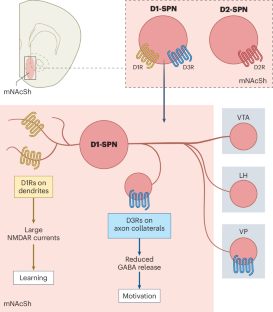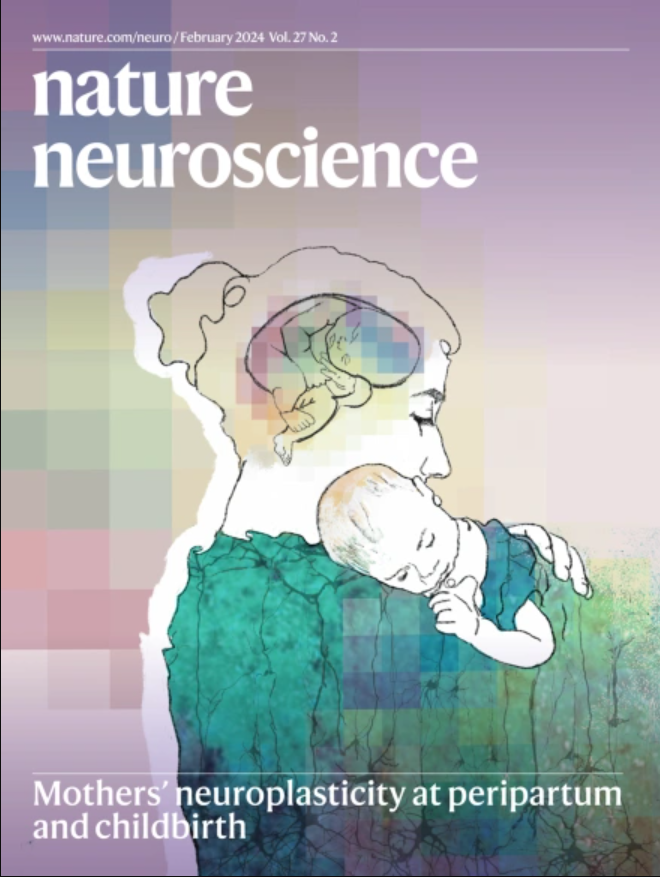Motivating interest in D3 dopamine receptors
IF 21.2
1区 医学
Q1 NEUROSCIENCES
引用次数: 0
Abstract
Reward signaling via dopamine is most commonly thought of as acting through neurons expressing either D1 or D2 dopamine receptors. Enriquez-Traba et al. show that neurons in the ventral striatum co-express D1 and D3 receptors, which they use to signal dissociable aspects of reward.


激发D3多巴胺受体的兴趣
通过多巴胺传递的奖励信号通常被认为是通过表达D1或D2多巴胺受体的神经元起作用。Enriquez-Traba等人表明,腹侧纹状体的神经元共同表达D1和D3受体,它们用来发出奖励可分离方面的信号。
本文章由计算机程序翻译,如有差异,请以英文原文为准。
求助全文
约1分钟内获得全文
求助全文
来源期刊

Nature neuroscience
医学-神经科学
CiteScore
38.60
自引率
1.20%
发文量
212
审稿时长
1 months
期刊介绍:
Nature Neuroscience, a multidisciplinary journal, publishes papers of the utmost quality and significance across all realms of neuroscience. The editors welcome contributions spanning molecular, cellular, systems, and cognitive neuroscience, along with psychophysics, computational modeling, and nervous system disorders. While no area is off-limits, studies offering fundamental insights into nervous system function receive priority.
The journal offers high visibility to both readers and authors, fostering interdisciplinary communication and accessibility to a broad audience. It maintains high standards of copy editing and production, rigorous peer review, rapid publication, and operates independently from academic societies and other vested interests.
In addition to primary research, Nature Neuroscience features news and views, reviews, editorials, commentaries, perspectives, book reviews, and correspondence, aiming to serve as the voice of the global neuroscience community.
 求助内容:
求助内容: 应助结果提醒方式:
应助结果提醒方式:


